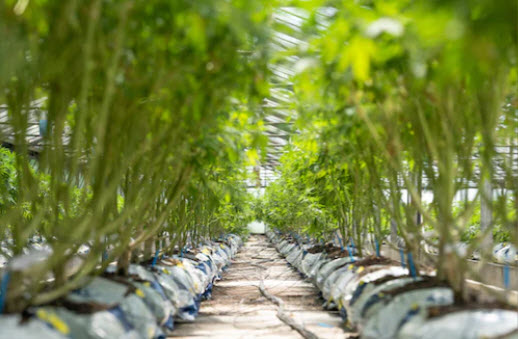Market crosswinds that include everything from inefficient and half-baked regulations to price wars are challenging the industry from the beginning of the year. What will this year bring to stabilize a wobbly industry?
In New York City’s Lower East Side, the Big Apple’s first cannabis dispensary opened on December 29 to around-the-block crowds. Yet even with all the excitement, the New York state industry is facing the same challenges and crosswinds as anywhere else.
This is a brief summary of what to expect in 2023 on all fronts and in significant global regions. One thing is for sure. It is likely to be an interesting year, just like 2022, for all the bumps and setbacks.
North America
In the US, price wars, the interpretation of policy generally, the renegotiation of the Farm Bill and the ever-present specter of full national legalization are all aspects of the American industry right now. Delta 8 is unlikely to survive this year in the US. Everywhere else this is essentially a dead issue.
Nevertheless, the ongoing forward motion of US states into the legalization column has created an environment where twenty-one states and the District of Columbia have legalized recreational use, with more on the way this year. This includes Maryland with a July start date already planned.
The real tipping point nationally is of course twenty-five states, but it won’t be this simple. Electoral math being what it is, the states that have legalized cannabis have to also feature in a presidential election strategy to ensure that full and final reform is on the front of the national presidential debate list. For that reason, Florida is a critical state that needs to turn in the next 18 months to have a real impact on the national discussion or line up a state amendment to coincide with the presidential elections.
Canada, which led the industrialized world with a recreational market at the federal level as well as the most robust (although far from perfect) public market financing, is also at an interesting tipping point. With financing decidedly harder to come by after a year of write-downs and other bearish signs, the companies that succeed are going to be those who are able to solve the cost issues of bringing quality weed to the market at prices consumers can afford, and within a corporate structure that does not skin investors.
Central and South America
There are a couple of powerhouses on the horizon that will make things all the more challenging for North American farmers as the industry normalizes north of the Rio Grande. Even if both medical-grade cannabis and hemp are kept out of the US, what is grown here is increasingly entering markets including Canada and Europe. While recreational use is not really a “thing” in any country yet except perhaps Mexico, Costa Rica, and Jamaica, the medical and industrial industries globally are going to continue to source from this part of the world for both quality and price reasons.
Europe
It is widely expected that given current discussions at the EU level, Germany will be allowed to proceed with some kind of legalized market and the legislation to create the first infrastructure will probably pass this year. Beyond that, all bets are off. It is unlikely that any market authorized by said legislation will kick off before mid-2024. In the meantime, beyond the hype of coming change, the German market is likely to enter the same strange territory as all newly recreational markets before it have done. Namely supply chain issues, pricing and reaching consumers in a no-advertising market.
Germany at this point is far from the only country literally chuffing at the starting date. The Czech Republic has already put the rest of the EU on notice that as goes Germany, so do they. This means that all the other countries currently fence sitting (Luxembourg and Malta) not to mention countries on the cusp, from Portugal to Italy, will engage rather than ignore a new industry that will generate investment, jobs, and tax revenue. That said, finding working capital is going to be challenging.
Across the Brexited divide, the Limeys are struggling with overall workability of the NHS. Adding cannabis to that conversation is still rocky. The CBD industry will continue apace. That said, do not look for friends in the current conservative government.
Africa
Several countries on the continent are figuring prominently in global cannabis conversations. Most notably, production in South Africa has finally begun to make it into Europe, and Morocco is certainly beginning to make strides in the right direction to create a legitimate market domestically that can meet the rigors of international distribution and sales.
Beyond these two countries, there are a variety of initiatives in countries all over the map, but the largest issue facing this part of the world is that the investments needed for basic commodity production that is of a high enough quality for an international market are still few and far between.
The Chinese are not interested (yet) in building such infrastructure, and beyond that foreign investment here is hit and miss.
Australia and New Zealand
Domestic markets here are evolving, but both countries are less open to imports than they used to be as domestic cultivation begins to get certified and look for foreign markets. This is a major problem for African producers in particular who got used to higher prices and lower regulatory burdens than importing to Europe.
Asia
Thailand has led the way on all things medical reform and this is starting to make a difference in other countries. Malaysia is likely to move ahead with medical reform, causing its own regional domino.
Beyond this China remains the still inscrutable cannabis domino. When they do decide to export look for a sharp drop in core hemp prices, particularly for industrial use.
Israel
The Israeli market is in the flux of change, just like everywhere else, and this is unlikely to change in the next 12 months. One thing is for sure. Imports to Israel have slowed to a crawl. This is likely to continue as the global sourcing discussion as well as pricing continues to make an impact on legalizing markets.








